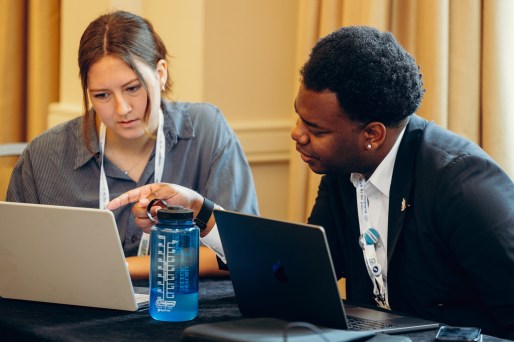How stnews.live Delivers Timely News Faster Than Ever
Wiki Article
The Value of Fact-Checking worldwide of News Online
The occurrence of false information in today's online news landscape has actually gotten to startling levels. Fact-checking organizations play an important role in neutralizing this fad. They validate insurance claims and enhance the reliability of journalism. Nevertheless, the performance of these organizations often depends upon their approaches and public perception. As target markets navigate this complicated setting, the effects of their searchings for may form the future of news consumption and trust fund. What does this mean for the stability of info moving on?
The Increase of Misinformation in the Digital Age
Exactly how has the arrival of digital technology contributed to the spread of misinformation? The fast growth of the web and social networks systems has helped with the circulation of details at an unmatched pace. Individuals can share posts, video clips, and point of views with a plain click, commonly without validating the content's precision. Formulas focus on spectacular or emotionally billed material, leading to a proliferation of misleading narratives that record attention.Furthermore, the anonymity afforded by electronic systems allows people to spread incorrect information without liability (stnews.live). False information thrives in resemble chambers, where customers are subjected primarily to perspectives that strengthen their beliefs, further setting fallacies. The saturation of details can bewilder individuals, making it challenging to discern qualified resources from unreliable ones. As a result, misinformation has actually ended up being a pervasive issue in the electronic landscape, influencing popular opinion and rely on legit news resources
The Role of Fact-Checking Organizations
Fact-checking companies play a crucial role in improving the reliability of journalism by confirming insurance claims made in news reports. Their efforts are important in combating false information, guaranteeing that accurate information prevails in the digital landscape. By holding media outlets accountable, these companies contribute considerably to educated public discourse.Enhancing Credibility in Journalism
While false information multiplies in the electronic age, fact-checking organizations play an essential duty in boosting the reputation of journalism. These companies thoroughly validate claims made in newspaper article, public statements, and social media sites posts, ensuring that information disseminated to the general public is exact and trustworthy. By giving independent evaluations, they offer as a vital source for journalists, assisting them keep high criteria of integrity. Furthermore, their efforts promote openness in media, promoting public trust fund. As target markets come to be significantly discerning, the visibility of trustworthy fact-checking entities can distinguish trustworthy news sources from those that might spread falsehoods. Eventually, the dedication of fact-checking organizations to promote truthfulness is critical for the health of democratic discussion.Combating Misinformation Properly
As misinformation remains to spread out quickly throughout electronic platforms, the function of fact-checking organizations becomes increasingly critical in the fight for accurate information. These organizations act as watchdogs, inspecting cases made by public numbers and media electrical outlets to assure responsibility. By using rigorous study methods and specialist evaluation, they validate realities and clarify deceptive stories. Their findings are disseminated via various networks, informing the public and cultivating crucial reasoning. In addition, partnerships with social media sites systems improve their reach, enabling prompt flagging of incorrect information. As digital literacy grows, the impact of fact-checking organizations is crucial in empowering target markets to discern truth from falsehood, inevitably adding to a much more enlightened society.How Misinformation Affects Public Understanding
Misinformation significantly undermines count on media, leading audiences to doubt the integrity of news resources. Because of this, people typically are attracted in the direction of electrical outlets that enhance their existing beliefs, adding to the polarization of point of views. This vibrant produces a fragmented details landscape, where shared understanding ends up being significantly tough to achieve.Trust in Media

Trust in media has actually ended up being progressively breakable in the electronic age, where the fast spread of false details can alter public understanding. As misinformation multiplies throughout social media and on-line platforms, target markets usually locate it challenging to determine trustworthy resources from unreliable ones. This unpredictability promotes suspicion, leading numerous individuals to question the intentions behind news coverage. As a result, depend on in established media electrical outlets has actually decreased, as consumers progressively turn to alternate resources that may lack strenuous content standards. This erosion of trust fund not just influences individual ideas but also threatens the collective capacity to engage in educated conversations. Ultimately, the honesty of journalism is at stake, highlighting the vital requirement for reliable fact-checking to bring back confidence in the media landscape.

Polarization of Viewpoints
The enhancing uncertainty toward traditional media has actually added to a growing polarization of viewpoints amongst the public. Misinformation, commonly disseminated via social media sites and on-line systems, plays a significant function fit unique ideological divides. People frequently choose info that lines up with their pre-existing ideas, reinforcing their point of views while dismissing opposing viewpoints. This resemble chamber effect escalates departments, leading to a fragmented public discourse where agreement becomes progressively elusive. Additionally, sensationalized narratives grow in this atmosphere, more info here better skewing public perception and cultivating suspect in qualified resources. As polarization intensifies, the necessity for reliable fact-checking comes to be extremely important to link voids and promote notified discussions, inevitably ensuring a more natural society with the ability of navigating intricate problems.Methods for Efficient Fact-Checking
Efficient fact-checking depends on an organized method that consists of detailed research study, confirmation of sources, and vital evaluation of insurance claims. A fundamental technique is cross-referencing information from multiple reputable sources to confirm its accuracy. Fact-checkers frequently utilize specialized data sources and archives to trace the origin of certain declarations, guaranteeing that the reported information lines up with recorded evidence.An additional essential technique includes looking at the context in which cases are provided. Misleading details can develop from out-of-context quotations or discerning data usage. By analyzing the wider narrative, fact-checkers can identify potential prejudices or misconceptions.
Furthermore, involving with specialists in relevant fields can provide quality and insight that enhances the fact-checking procedure. This cooperation can uncover nuances that laypeople may neglect - stnews.live. Ultimately, a regimented method incorporating these methods promotes an extra educated public, improving the integrity of info disseminated in the electronic age
The Impact of Social Media Site on News Intake
How has social networks transformed the method people consume news? The introduction of platforms like Facebook, Twitter, and Instagram has significantly altered news consumption patterns. News is now distributed quickly, allowing customers to gain access to real-time updates and involve with material via likes, shares, and comments. This immediacy has fostered a preference for bite-sized info, frequently at the cost of in-depth analysis.Furthermore, social media allows customized news feeds, where algorithms curate web content based on user preferences, producing echo chambers that might limit direct exposure to diverse perspectives. The function of standard news electrical outlets has actually diminished as people increasingly rely upon peer recommendations and trending subjects. Consequently, the reputation of details is usually jeopardized, as sensationalism can outweigh factual reporting. Overall, social media has actually reshaped news consumption, stressing speed and customization while testing the standards of journalistic honesty.
Equipping Target Markets to Recognize Trustworthy Resources

In addition, analyzing the authorship and organizational background of news posts can expose potential biases. Cross-referencing info across numerous trusted electrical outlets better enhances the verification procedure. Using digital devices, such as browser extensions that rank the trustworthiness of internet sites, can additionally aid in identifying credible details. By proactively involving with these resources and cultivating a critical attitude, target markets can better outfit themselves to recognize trusted news sources, ultimately promoting a more enlightened society in the middle of the complexities these days's media atmosphere.
The Future of Journalism and Fact-Checking
As the media landscape advances, the future of journalism and fact-checking deals with both tests and opportunities. The increase of electronic platforms has democratized info dissemination, allowing diverse voices to emerge. Nevertheless, this has actually additionally led to the expansion of false information, demanding durable fact-checking mechanisms. Journalists will significantly rely upon technology, including AI devices, to confirm realities swiftly and successfully.Collaboration between wire service and fact-checking entities is prepared for to strengthen integrity and transparency. Moreover, target market involvement will play a necessary duty, as notified viewers end up being significant partners in recognizing trustworthy web content.
The need for accountability and precision is most likely to expand, pushing reporters to promote high standards in their reporting. Eventually, the future of journalism might depend upon its capability to adjust to technical advancements while preserving journalistic honesty, making certain that fact-checking continues to be a foundation of trustworthy news.
Often Asked Concerns
How Can I Report Misinformation I Run Into Online?
To report misinformation run into online, people can utilize platform-specific coverage devices, offer clear evidence, and share the info with fact-checking organizations. Involving with community discussions discover this can likewise assist raise understanding concerning the misinformation.What Are Typical Signs of Misinformation in News Articles?
Common indicators of false information in newspaper article consist of astonishing headings, absence of reliable sources, psychological language, irregular realities, and absence of author credentials. Readers should seriously review content for these signs to discern precision.Exactly How Do Fact-Checkers Confirm Sources?
Fact-checkers confirm resources by cross-referencing details with these details credible databases, seeking advice from professionals, and analyzing the original context of cases. They additionally evaluate the reliability of the resources, making sure exact and credible info for public intake.What Legal Activities Can Be Taken Versus False information?
Lawsuits against misinformation may include libel legal actions, cease-and-desist orders, and regulatory penalties. Victims can prosecute via civil courts, while some jurisdictions enforce fines or sanctions on platforms disseminating false info.Are There Apps for Fact-Checking News On-The-Go?
Countless applications exist for fact-checking news on-the-go, consisting of Snopes, FactCheck.org, and PolitiFact. These applications assist users confirm claims rapidly, promoting notified decision-making and cultivating a more critical strategy to consuming news in real-time.Report this wiki page